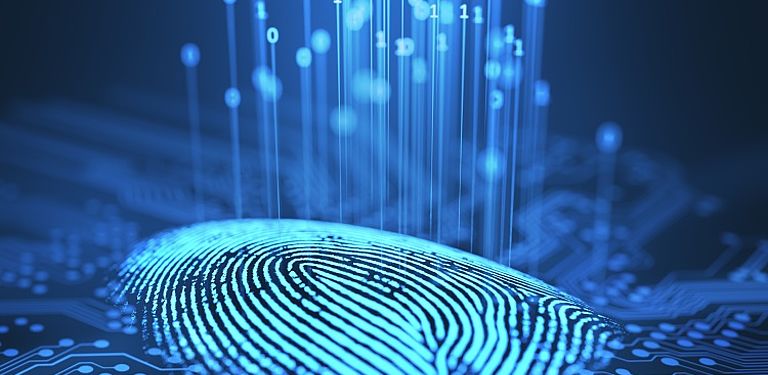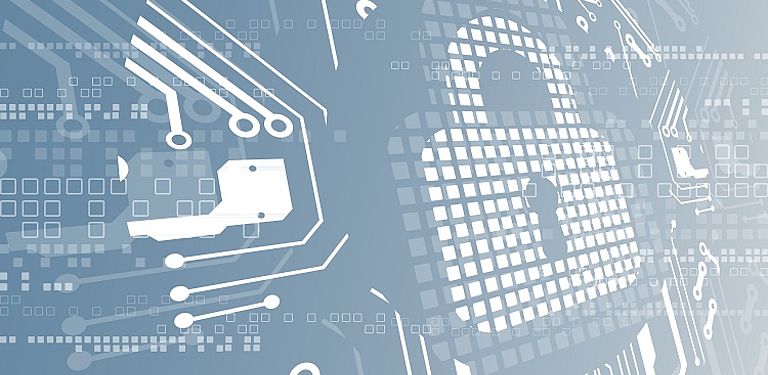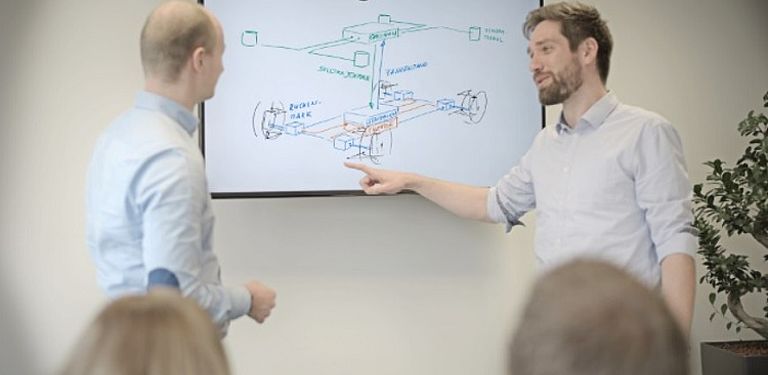Cybersecurity and Data Protection
Successful digitalisation is closely tied to digital security: The more the state, society and economy rely on digital processes, the more dependent we become on their secure implementation. At the same time, the growing threats are becoming increasingly worrying. The consequences (such as ransomware attacks or those directed against critical infrastructures) are already very prominent despite the fact that we are only at the beginning of the digital turn.
The University of Passau is taking a leading role in Bavaria in the field of IT security and has a long tradition of research in this area. A large number of professors at the University in the field of digital security have significant experience in coordinating research activities, for example with the Bavarian research cluster "ForDaySec" (security for daily life), which coordinates research at five universities in Bavaria under the leadership of the University of Passau. The interdisciplinary Passau Institute of Digital Security (PIDS) already deals with technological, economic and legal aspects of IT security, and in addition to contributing basic research, advises on IT security issues. The Institute for Law and Digital Society sees itself as a central institution that seeks to answer core questions related to the digitalisation of society from a legal perspective, whereby it adopts an intra-disciplinary research approach.
Read on to learn about the involved scholars, their research motivation and selected topics.
Projects with a focus on Cybersecurity and Data Protection
Articles in the research magazine
The researchers involved
Professor Hermann de Meer
How can we make the electricity network safe and stable using digitalisation?
How can we make the electricity network safe and stable using digitalisation?
Professor Hermann de Meer holds the Chair of Computer Networks and Computer Communications at the University of Passau and is Honorary Professor at University College London. Previously, he held positions as Junior Professor at the University of Hamburg and Visiting Professor at Columbia University in New York City, USA. His research interests include cloud computing, energy systems, network virtualisation, IT security, smart grid, smart city, Industry 4.0, the digitalisation of energy systems, computer networks, and computer communication, as well as distributed computing.
Professor Moritz Hennemann
Which regulatory models for digital interaction should we be following in the 21st century?
Which regulatory models for digital interaction should we be following in the 21st century?
Professor Moritz Hennemann has held the Chair of European and International Information and Data Law and headed the Research Centre for Law and Digitalisation (FREDI) of the Faculty of Law at the University of Passau since 2020. His research revolves around the global development of data and data protection law as well as the legal and regulatory framework of the digital economy.
Professor Stefan Katzenbeisser
How can critical infrastructures in a networked world be protected against cyber attacks?
How can critical infrastructures in a networked world be protected against cyber attacks?
Professor Stefan Katzenbeisser holds the Chair of Computer Engineering at the University of Passau. He researches cyber security in embedded systems, critical infrastructures and technical data protection. He is spokesperson of the research cluster "ForDaySec - Security in everyday digitalisation", which is funded by the Bavarian Science Ministry. Besides participating in research projects on secure mobility, he is also involved in the research initiative "6G Research and Innovation Cluster (6G-RIC)". Since November 2023, Professor Katzenbeisser has been a representative of the DFG Review Board “Security and Dependability, Operating, Communication and Distributed Systems”.
Professor Elif Bilge Kavun
How can artificial intelligence methods be used to make IT systems more secure?
How can artificial intelligence methods be used to make IT systems more secure?
Professor Elif Bilge Kavun is Assistant Professor for Secure Intelligent Systems at the University of Passau. Before this, she was "Lecturer" for Cybersecurity at the University of Sheffield (Great Britain) and Digital Design Engineer for Crypto Cores at Infineon (Munich). She completed her doctorate on "Embedded Security" at Ruhr University Bochum in 2015. Professor Elif Bilge Kavun researches the security of novel intelligent systems as well as traditional computer and embedded systems. Among other things, she devotes herself to physical attacks and countermeasures.
Professor Martin Kreuzer
How do you check the security of encryption systems using computer algebra?
How do you check the security of encryption systems using computer algebra?
Professor Martin Kreuzer has held the chair of Mathematics with a focus on Symbolic Computation since 2007. His main research areas are computer algebra, commutative algebra, algebraic geometry and their applications. He is particularly interested in algebraic cryptography, which deals with the construction of new cryptosystems and the security analysis of existing cryptosystems using algebraic methods. The DFG project "Algebraic Error Attacks", which investigates the protection of cryptographic hardware against fault injections, is his most important activity in this field.
Professor Susanne Mayr
How does being connected online affect us as humans?
How does being connected online affect us as humans?
Professor Susanne Mayr has held the Chair of Psychology and Human–Machine Interaction of the Faculty of Social and Educational Sciences since 2015.
Professor Joachim Posegga
How to make IT applications secure in everyday life?
How to make IT applications secure in everyday life?
Professor Joachim Posegga holds the Chair of IT Security at the University of Passau. He earned his doctorate at Karlsruhe Institute of Technology (KIT) and conducted industrial research in the field of security for a period of ten years before he was appointed head the Research Group "Security in Distributed Systems" of the Department of Informatics at the University of Hamburg. In 2009, he moved on to Passau and was appointed head of the Institute for IT Security and Security Law (ISL). In his research, he focuses on web security, security architectures and protocols, placing a special emphasis on the Internet of Things.
Professor Thomas Riehm
What does digitalisation mean for the application and development of laws that are over 100 years old?
What does digitalisation mean for the application and development of laws that are over 100 years old?
Professor Thomas Riehm holds the Chair of German and European Private Law, Civil Procedure and Legal Theory and is the speaker of the Institute for Digital Society Law (IRDG) as well as a member of the Passau Institute for Digital Security (PIDS). His main research interests are contract and liability law with a focus on IT matters but also civil dispute resolution, including their digitalisation. Among other areas, he focuses on the legal issues that arise from the digitalisation of civil law proceedings, the use of AI, contract law for digital services, and the adaptation of form requirements to digitalisation needs.
Professor Kai von Lewinski
What does the internet mean for geographically limited legal systems?
What does the internet mean for geographically limited legal systems?
Professor Meinhard Schröder holds the Chair of Public Law, European Law and IT Law. He is a member of the Passau Institute of Digital Security (PIDS) and the Institute for Digital Society Law (IRDG). His research focuses not only on traditional legal fields like municipal law and administrative procedural law but also on digital economy law, data protection law and e-government law.
Professor Thomas Widjaja
What changes when companies develop new services using customer data?
What changes when companies develop new services using customer data?
Professor Thomas Widjaja has held the Chair of Business Information Systems since 2016. He is also one of the principal investigators of the DFG Research Training Group 2720. Previously, he gained his doctoral and postdoctoral degrees at TU Darmstadt.
Professor Jens Zumbrägel
How can abstract maths be used to enhance the security of encryption?
How can abstract maths be used to enhance the security of encryption?
Professor Jens Zumbrägel has been Professor of Mathematics with a focus on Cryptography since 2017. He is all enthusiastic about algebra and its applications in public key cryptography and communication technology. His research focus is on the discrete logarithm problem, and currently also on post-quantum cryptography and codes over rings.




































